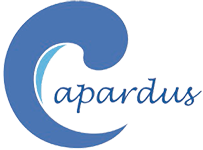Document, Discover and Interoperate - The Data Documentation Initiative (DDI) is an international standard for describing the data produced by surveys and other observational methods in the social, behavioral, economic, and health sciences. DDI is a free standard that can document and manage different stages in the research data lifecycle, such as conceptualization, collection, processing, distribution, discovery, and archiving
The Ocean Best Practices System (OBPS) comprises: a repository archive; sophisticated but user-friendly web interface; advanced technology including text mining and semantic tagging; peer-reviewed journal linked to the repository; a training component supported by the OceanTeacher Global Academy and a community forum: Ocean Best Practices Repository
An Arctic section under OBPS has been established for uploading relevant Arctic documents identified in CAPARDUS or other projects, the Arctic Practice repository. Instruction videos have been prepared to explain how to ingest documents in the Arctic Practice, see https://youtu.be/tusrBa4-_Rk and https://www.dropbox.com/home/CAPARDUS-6-10-Aug-2022/Video%20OBPS?preview=OBPS+Intro+and+Demos.mp4
Arctic Shipping Best Practice Information Forum has been established by the Arctic Council working group PAME (Protection of the Arctic Marine Environment) in response to the International Code for Ships Operating in Polar Waters (Polar Code). The Forum provides useful information and access to documents on safety measures, pollution prevention measures and additional guidelines: https://pame.is/arcticshippingforum#other-information
Global Cryosphere Watch developes measurement standards and best practices for cryospheric variables: https://globalcryospherewatch.org/bestpractices/methods.html
Two reports on Community-based monitoring programmes (CBM) have recently been provided in the INTAROS H2020 project, see https://capardus.nersc.no/node/42.
An Atlas of Community-Based Monitoring in a Changing Arctic has been established to showcase the many community-based monitoring (CBM) and Indigenous Knowledge (IK) initiatives across the circumpolar region: http://arcticcbm.org/index.html
Example of CBM is PISUNA, which was established by Greenland Ministry of Fisheries and Hunting to strengthen the involvement of hunters, fishermen and other interested in the documentation and management of living resources in Greenland. More information at http://www.pisuna.org/uk_project.html
A number of relevant reports on CBM work in Alaska and Canada are available at https://drive.google.com/drive/folders/1ANj9xOumm4-33lBSv3TncK-iMSyYEV0s?usp=sharing.
National Science Foundation: Principles for Conducting Research in the Arctic: https://www.nsf.gov/geo/opp/arctic/conduct.jsp
